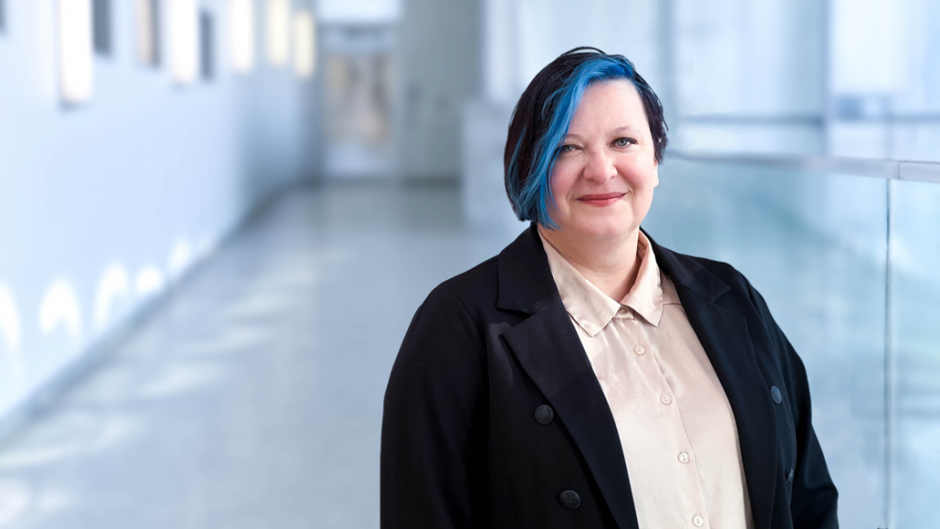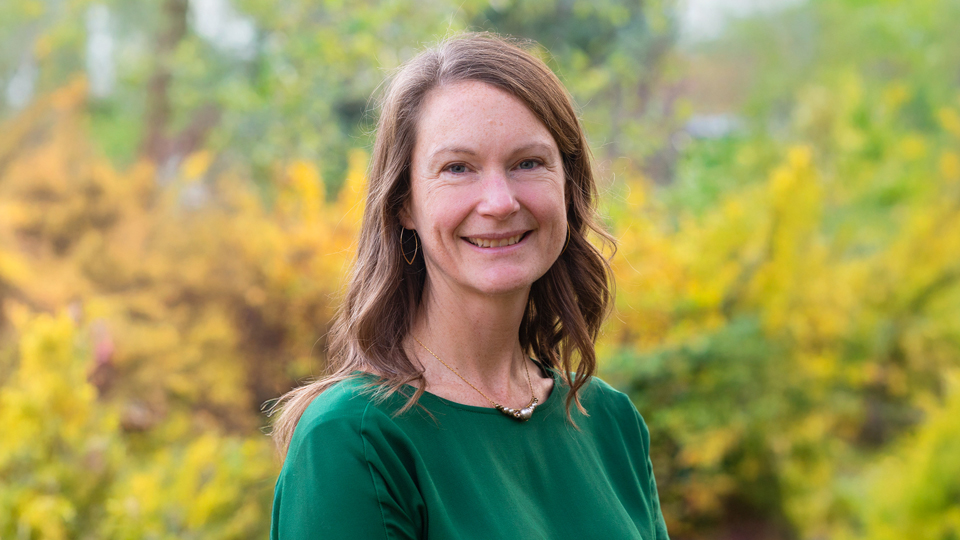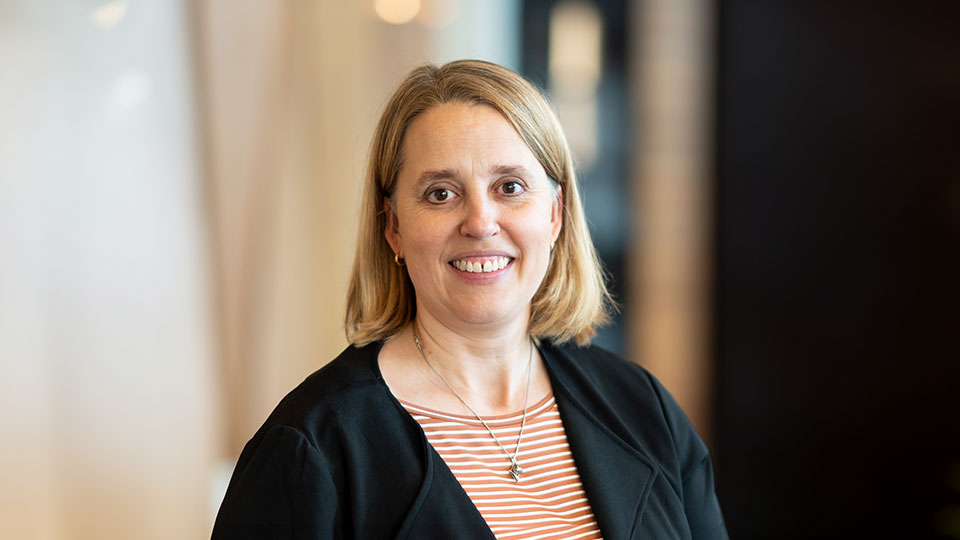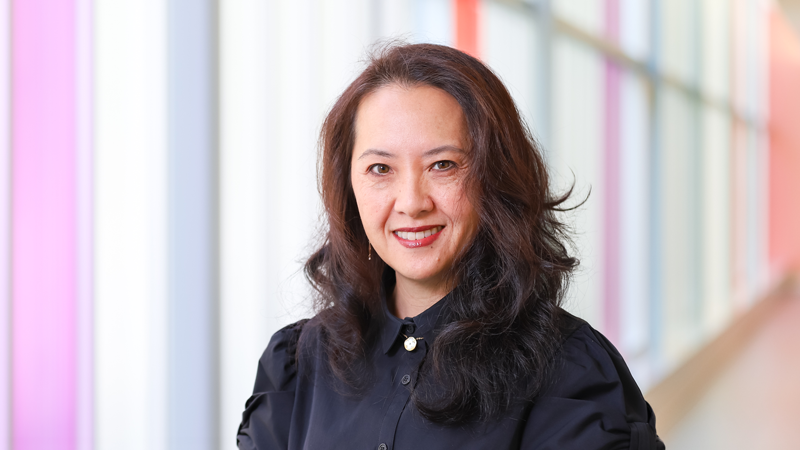
Dr. Amy Salmon’s journey to becoming a clinical faculty member might have been, as she puts it, “slightly less-conventional,” but it was very intentional.
While pursuing a PhD in Educational Studies focused on sociology and health education, she found herself working alongside UBC Faculty of Medicine clinical faculty members — and saw a path that would allow her to continue her academic pursuits, while contributing tangibly to improving healthcare and healthcare systems.
As a clinical faculty member in the School of Population and Public Health, Dr. Salmon has combined her passion for health research and teaching with a variety of direct care and leadership roles, including at BC Children’s and BC Women’s Hospitals, Vancouver Coastal Health, and in frontline organizations in Vancouver’s Downtown East Side. In 2016, she joined the Centre for Advancing Health Outcomes, where she also serves as Associate Director.
Now, as Director, Clinical Faculty Affairs, she draws on her own experiences as a clinical faculty member to continue strengthening connection between the Faculty and the more than 10,000 outstanding clinical faculty members who play a vital role in training and inspiring the next generation of healthcare professionals, while simultaneously delivering excellence in care to their patients and communities.
We sat down with Dr. Salmon to learn about her goals as Director, and discover how she likes to recharge.
Who inspires you and why?
I am inspired by the many patients and families I serve. Through my work in Vancouver’s Downtown East Side and programs like Sheway (a harm-reduction program for pregnant and parenting women with substance-use issues), I see people reaching out for care and support — displaying enormous amounts of trust in healthcare systems despite their experiences of the living legacies of colonization, and of racism, sexism, transphobia and any of the ‘-isms’ that show up in healthcare. I think it is enormously brave, when you’ve had these experiences, and when you are at your most vulnerable, to be willing to come back again and try something else.
My colleagues also inspire me, in so many different ways. I’m surrounded by people who want to roll up their sleeves and contribute tangibly to better health and better care for everyone.
You have been a clinical faculty member in the Faculty of Medicine for a number of years before stepping into your current role as Director, Clinical Faculty Affairs. Why is this work important to you? What are your goals or aspirations in the role?
Clinical faculty members make a vital and essential contribution to the life of the Faculty of Medicine, and it’s important that they are supported and celebrated.
From my own experience as a clinical faculty member, it is a journey of going to many places while still being in the same place. In order to be able to navigate these transitions between environments, roles and responsibilities, you need a meeting place — somewhere within the university that feels like a warm and welcoming front door.
In my role as Director, I want to be a part of making sure that we keep that warm, welcoming front door open to clinical faculty members. It’s about ensuring clinical faculty members know who to ask or reach out to for support, and making sure they are familiar with all the opportunities to engage with or to get involved in at the university.
Clinical faculty members are making extraordinary contributions — innovations in teaching practice, quality improvement work within their clinic or health system — that are already, or have the potential to really enrich the academic life at the university. So another aspiration I have as Director is to ensure we’re creating spaces that welcome people in and invite clinical faculty members to share what they are doing — these conversations will benefit us all.
What is the best piece of advice you have received?
To be patient, and to spend more time listening than talking.
In much of my research and health systems work, the pace of progress can be slower than is observable, or we can’t necessarily see the change while it’s happening. I also do a lot of community-based and participatory research, where our ability to succeed in our scholarship, and to produce things that are of value to the community, can only be done at the speed of trust. Having the patience to be still and to listen in those processes, and to realize that that is an important part of my productivity as a researcher, was great advice.
What was your first job?
My first paid job was operating broadcast cameras. As a high school student I started out as a volunteer at a local cable station and later worked for them, operating broadcast cameras. I went on to do the same work at the racetrack, operating broadcast cameras for horse races.
How do you like to recharge?
I’m a big animal lover, and one of my favourite ways to recharge is spending time with my beasts — right now I have three dogs and a cat. We enjoy going for walks, relaxing in the sunshine — they’re all about being present in the moment, and I love that.
Where is your favourite spot in B.C.?
I spend a lot of time in the eastern part of the Fraser Valley because I conduct research there, and because I have family and friends there. It’s the place that feels very much like home to me. I’m a big camping and outdoors kind of person, so if I want to go for some moments of peace and calm, I’ll probably find a quiet space out there.
I also spend a lot of time in the Comox Valley now, where I’m conducting research and evaluation work focused on seniors and long-term care. It’s a newer community for me, but has an interesting, complex landscape that is fascinating to explore, and a warm, welcoming, diverse community of people to hang out with.
In honour of the International Women’s Day 2024 campaign, would you like to share what inspiring inclusion means to you?
To me, inspiring inclusion means working together to ensure that all women, including trans women and gender-diverse people, are embraced and celebrated. Whether that’s broadly in our society, or more specifically in the Faculty of Medicine, it’s up to all of us, working together, to ensure we are collectively supporting their aspirations, and celebrating the powerful and necessary contributions of women and gender-diverse people to scholarship, practice and the health of communities.
Published: March 2024


